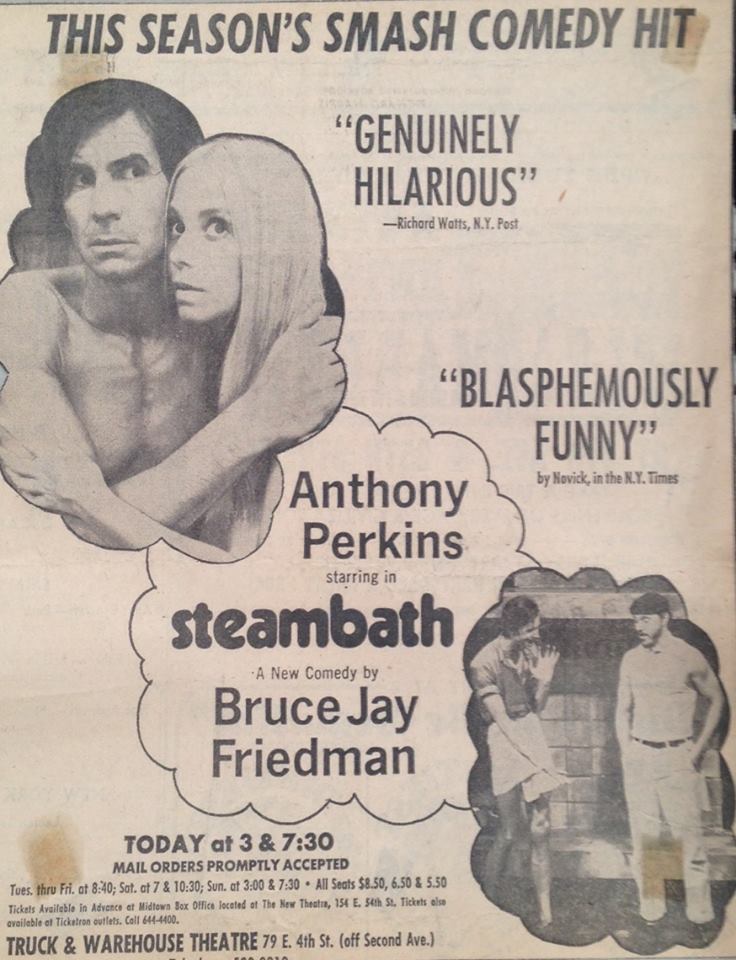New York City
Steambath Letters
It was 1970, but really the apex of the 1960s. Though I loved the play, my father assumed I only came every Friday for the nude shower scene, featuring a gorgeous actress named Annie Rachel. It was in the first act, which I always caught before the early show at the Fillmore East, around the corner.
more...Save the Tapes!
This Sunday’s New York Times Magazine cover story revealed the Universal Studios fire that obliterated the repository of master tapes from an American century of music. Bean-counter executives that run the three remaining major labels care little about history. Herein, my own experience in the hopeless pursuit of protecting decaying master tapes–from my book, Tell the Truth the Truth Until they Bleed.
more...Wayne Newton’s Altamont
Nostalgia for the 50th anniversary of Woodstock will soon begin. Woodstock itself has been insidiously branded and commercialized like shaving cream, beer and everything else. And so we will also be reminded of the fatal Altamont concert, headlined by the Stones, which followed later that same year. Four people died (a homicide, a drowning, two hit-and-run car accidents). But few remember the Summer of Newton. This disaster at the World Trade Center preceded Al-Qaeda by 18 years. I was the only one to cover the event, in my weekly Naked City column for Screw, July 25, 1983, reprinted here:
more...Lullaby of Tiny Tim
Tiny Tim deserves a permanent speaking forum. Many of the national TV podiums from which he performed in the late ’60s have cast him aside, regarding him as a “charity guest.” He struggled for two decades before hitting the big time as a singer/pop aberration, then hit the Vegas bandwagon for resuscitation. He became a great American fad before having a chance to nurture his cult status as a unique artist and musicologist of early 20th century popular song, a virtually forgotten era—save for Tiny’s determination to sing its glories. He is also a most extraordinary connoisseur of women.
more...Nellie and Her Sons.
Nellie Hatt and her sons Ned, left, and Carl on farm at Baileyville, Me., where all were born. If crops are bad, Ned said, “We make do, then. We don’t ask nobody’s help.”
The above caption and photo ran on page 37 of The New York Times, July 2, 1974. It has haunted me ever since. It was taken by Arthur Grace, for a story called “Maine Farmers See Aid in Beef,” by Alden Whitman. The dateline was a town called “Meddybemps,
Maine.”

